Group 5 origins
The history of chassis 935-001, and Porsche’s 935 program at large, originates in a major revision to the FIA’s Group 5 category. While the general template for Group 5 had been in place since 1966, for the 1976 racing season the FIA changed the rule book to allow extensive modifications to production-based vehicles homologated in Groups 1 through 4. These Special Production Cars were designed to contest the World Championship for Makes and followed the Silhouette rules, which permitted major bodywork and chassis upgrades if the basic silhouette was unchanged. The new regulations gave Porsche an ideal opportunity to further refine the turbocharged 911 and compete for the Manufacturers’ Championship with a highly developed works entry. The result was the 935.
935-001
The development of the Type 935 began in late 1975 with the car presented here, chassis 935-001. It was the first 935 built. Internally designated R15, 935-001 was constructed in late 1975 and made its first test runs at the Circuit Paul Ricard that December.
The all-new 935 showed clear signs of its evolution from the Carrera Turbo 2.14s of 1974. Like the 1974 Group 5 Porsche, the 935 featured radically styled fiberglass bodywork, coil-spring suspension, massive rear tires, and a turbocharged flat-six engine. Whereas the Carrera Turbo 2.14 developed between 400 and 500 bhp depending on boost, the new 935 was conservatively rated at 590 bhp, with as much as 630 bhp available for short bursts.
Car Highlights
- The First 935 Built; A Significant Piece of Motor Sports History
- Factory Prototype (R15) Used for Testing and Development
- An Integral Component of Porsche’s 1976 Group 5 Championship
- Captured 1st Overall at Watkins Glen and 3rd Overall at Dijon in 1976
- Fully Restored to Concours Standards by Marque Specialist Cavaglieri Restorations
- The Sole Works Martini Racing Porsche 935 in Private Ownership
Technical Specs
- 2,875 CC SOHC Air-Cooled Flat 6-Cylinder Engine
- Bosch Mechanical Fuel Injection
- 590 BHP at 7,800 RPM
- 4-Speed Manual Transaxle
- 4-Wheel Ventilated Disc Brakes
- Front Independent MacPherson Strut Suspension with Coil-Over Shock Absorbers
- Rear Independent Double-Wishbone Suspension with Semi-Trailing Arms and Coil-Over Shock Absorbers
Race Highlights
- 6 Hours of Watkins Glen, July 1976, Stommelen/Schurti, No. 4 (1st Overall)
- 6 Hours of Dijon, France, September 1976, Stommelen/Schurti, No. 3 (3rd Overall)
- IMSA Sears Point 100, California, July 1979, Haywood, No. 7 (3rd Overall)
- IMSA Portland 100, Oregon, August 1979, Haywood, No. 7 (2nd Overall)
- Trans Am Laguna Seca, October 1979, Haywood, No. 29 (4th Overall)
Early testing
During these early test sessions at Paul Ricard, each of the works drivers was given an opportunity to try out the new car. Jochen Mass, who had been signed to drive for the Porsche works team in 1976, drove the 935 at Paul Ricard and was quite impressed by its power. In an interview with Road & Track magazine, Mass recalled his experiences with Porsche’s latest machine:
“During early-season testing at Paul Ricard I had the Turbo on the track at the same time some Formula 1 cars were practicing. In the turns the Formula 1 cars could pass the Turbo, but once I caught them in the straights, I could pass and pull away.”
Following the various testing and development trials, Porsche constructed chassis 935-002 to serve as the primary Martini & Rossi Racing Team works entry throughout the 1976 season. In its first two races (Mugello and Vallelunga), the works 935 was without competition. At Le Mans, a non-championship race for 1976, 935-002 won the Group 5 class and placed 4th Overall. Chassis 935-001 certainly contributed to the factory effort, acting as the practice car for Rolf Stommelen and Manfred Schurti during the pretraining sessions.
Despite the early successes of 935-002, reliability issues developed, which allowed the BMW team to gain a foothold. Late in the season, with the competition from Munich closing in, 935-001 was prepared and brought into service in an all-out attempt to win the Group 5 Championship.
First race
The debut race for 935-001 took place on July 10, 1976, at the 6 Hours of Watkins Glen in New York. In a combined field of 33 SCCA Trans Am and FIA Group 5 entries, Stommelen and Schurti were entrusted with 935-001, while Mass and Jacky Ickx were assigned to the other Martini & Rossi works 935. After qualifying in 2nd position, 935-001 dominated the six-hour race, setting the fastest lap and taking the checkered flag ahead of Egon Evertz’s 934/5 and 935-002.
Following this triumphant success, 935-001 was sent to Dijon, France, where it took part in the final race of the 1976 championship season on September 4. Once again driven by Stommelen and Schurti, the works 935 maintained a steady pace throughout the six-hour event, finishing 3rd Overall behind 935-002 and the Vaillant-sponsored Kremer entry. Not only did this result clinch the 1976 Group 5 World Championship for Makes Cup for Porsche, it also marked the first time that the championship had been won by a forced-induction car.
Road & Track
Beyond its success on the track, it is believed that 935-001 was the 935/76 featured in “A Tale of Three Turbos – Production vs. Group 4 vs. Group 5,” a comparison test that appeared in the January 1977 issue of Road & Track. While the original plan intended for a direct, back-to-back test at Watkins Glen, both Martini 935s were forced to return to Weissach in preparation for the final round at Dijon. Due to this circumstance, the 935 segment of the road test was conducted at Porsche’s test track.
Having moved on to the updated 935/77, Porsche included 935-001 in a package of cars that was sold to Vasek Polak in Hermosa Beach, California. For over two decades, the 935 remained in Polak’s California garage, surrounded by other significant Porsche racing cars and a remarkable collection of spare parts.
When the Polak collection was eventually sold off, noted restorer Kevin Jeannette acquired 935-001 and the former works 935 once again joined an exceptional stable of racing Porsches. From there, the 935 was sold to John Kotts of Houston, a collector with a passion for important competition cars. In 2008, after a lengthy pursuit, Matthew Drendel was finally able to acquire 935-001, adding it to his collection of significant turbocharged Porsches.
Acquired by the current owner from The Drendel Family Collection in 2012, 935-001 has since been restored to exacting, concours standards by the renowned Cavaglieri Restorations, with an engine rebuild carried out by the experts at Ed Pink Racing Engines. Accurately presented in its victorious 1976 Watkins Glen livery, 935-001 was awarded Best Race Car Restoration upon its debut at the 2018 Amelia Island Concours d’Elegance. Its only other public showing took place at Rennsport Reunion VI in 2018, when it was displayed alongside Porsche’s limited-production, track-only GT2-based 935.
Today, 935-001 retains several important distinctions that separate it from every 935 that followed. Not only is this the first 935 built, and the first production Turbo chassis, it is also the only complete, ex-works 935 in private ownership. The fact that its sister car, 935-002, has been a part of the Porsche Museum since the close of the 1976 racing season is a powerful testament to the enduring significance of the original Martini Racing team cars.
Furthermore, its racing achievements – a win and a podium finish at the height of international competition – and well-documented provenance are beyond reproach. Since leaving the factory, 935-001 has had just four owners, each a respected and knowledgeable proponent of the Porsche marque.
The remarkable success of the original 935/76 works cars urged Porsche to build approximately 37 customer cars between 1977 and 1979. The 935s, in their various guises, remained competitive for nine seasons and achieved outright victories at Le Mans, Daytona, and Sebring. Even today, the Porsche 935 holds a legendary status in the history of international motor sports.
935-001 is the car that started it all: the factory prototype that was used to develop the 935 series; the car that helped capture the 1976 Group 5 Championship; and the car that furthered Porsche’s reputation as a leader in technical innovation.
The availability of 935-001 represents a remarkable opportunity, one that should not be missed.
Sales Information
Go HERE for auction information on this Porsche.
Above content © 2024 Dr. Ing. h.c. F. Porsche AG reviewed and edited by Rex McAfee


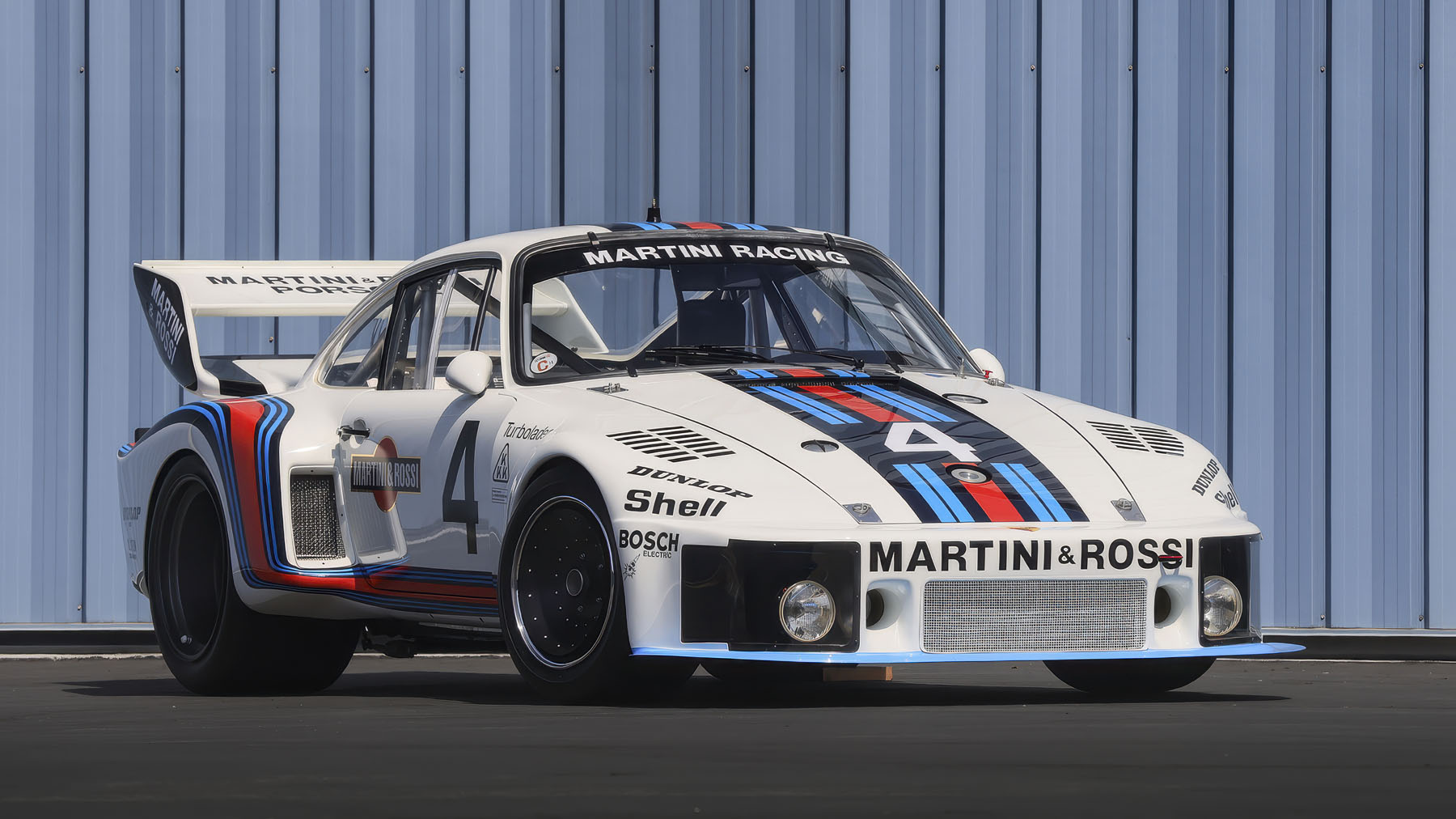
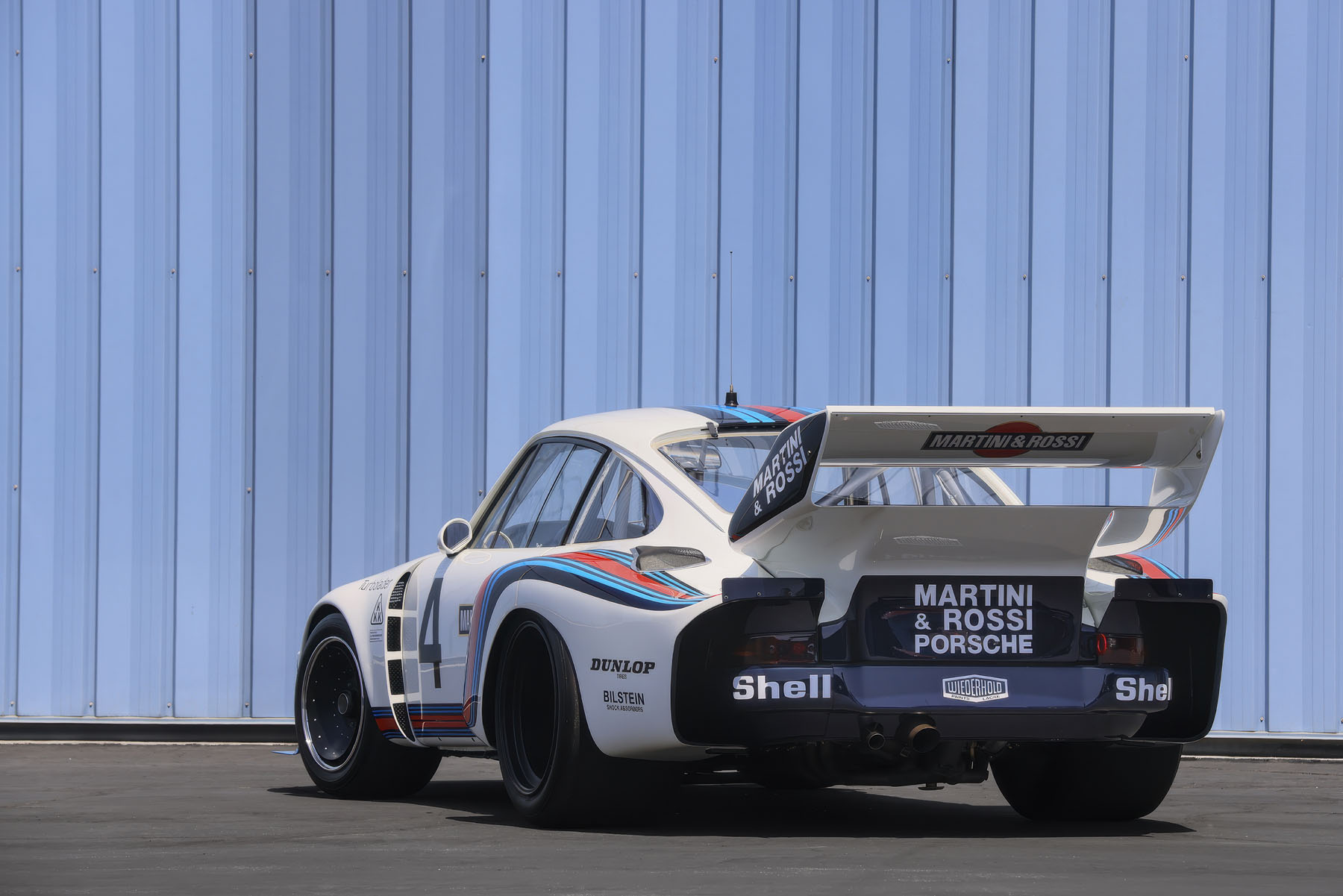
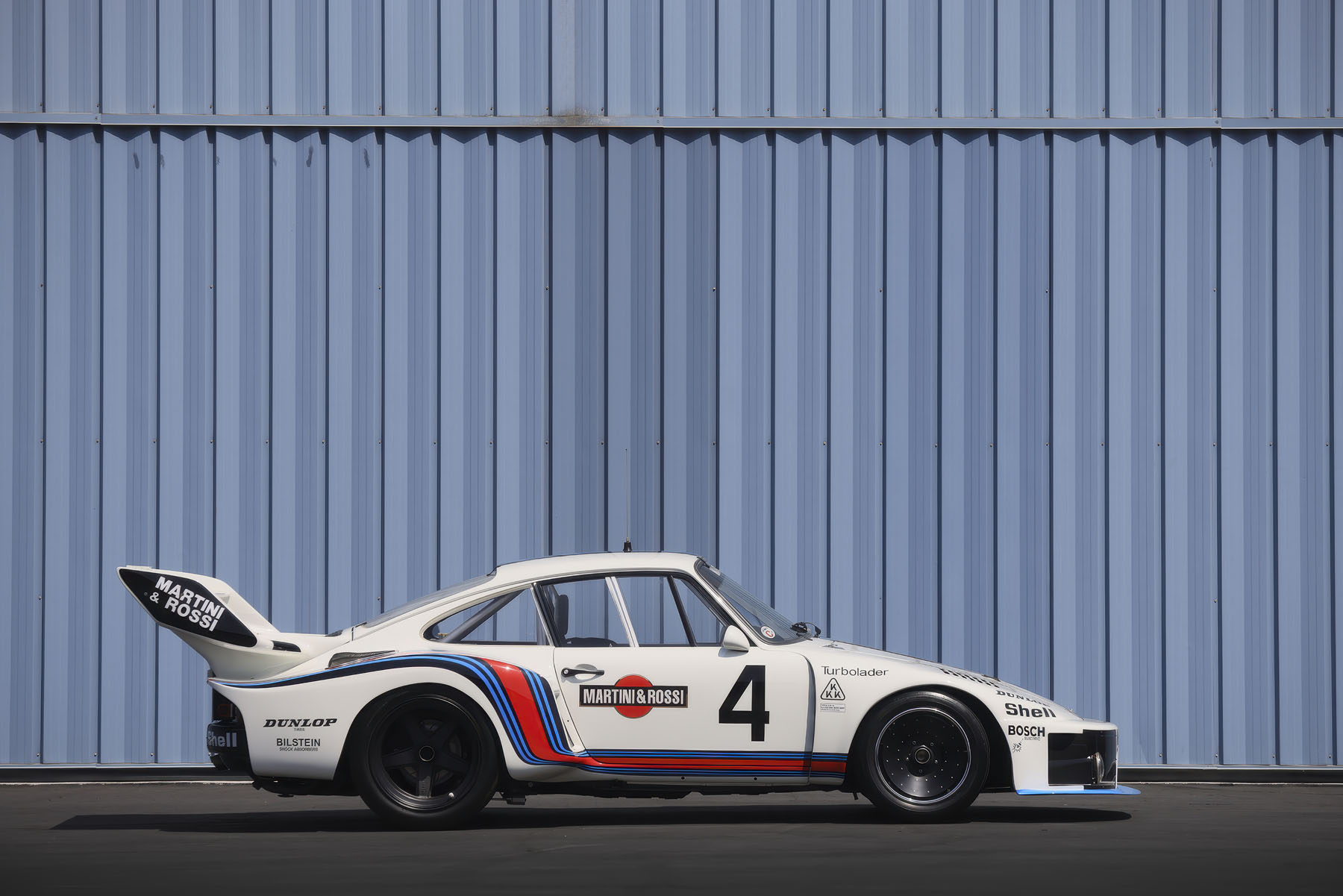
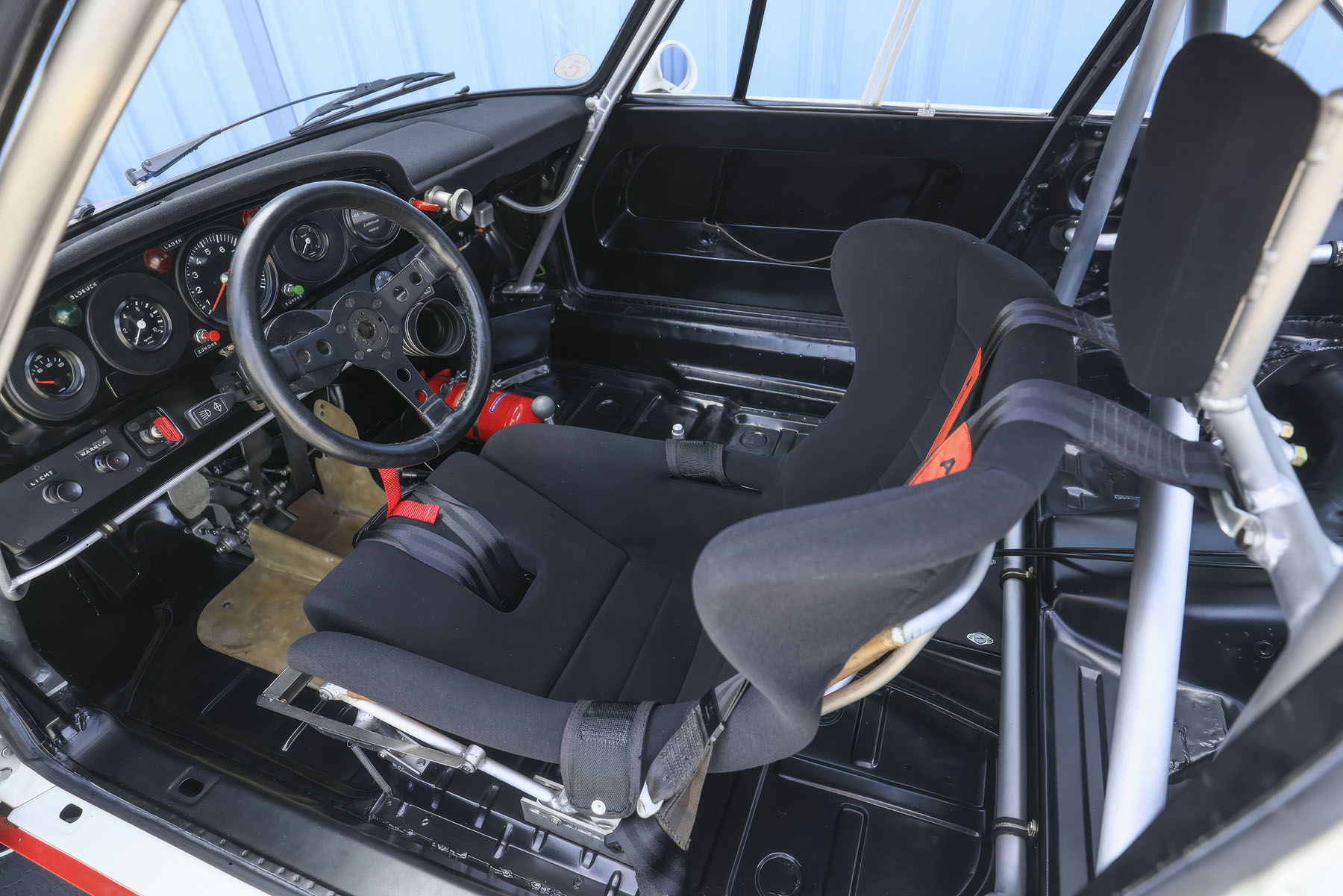
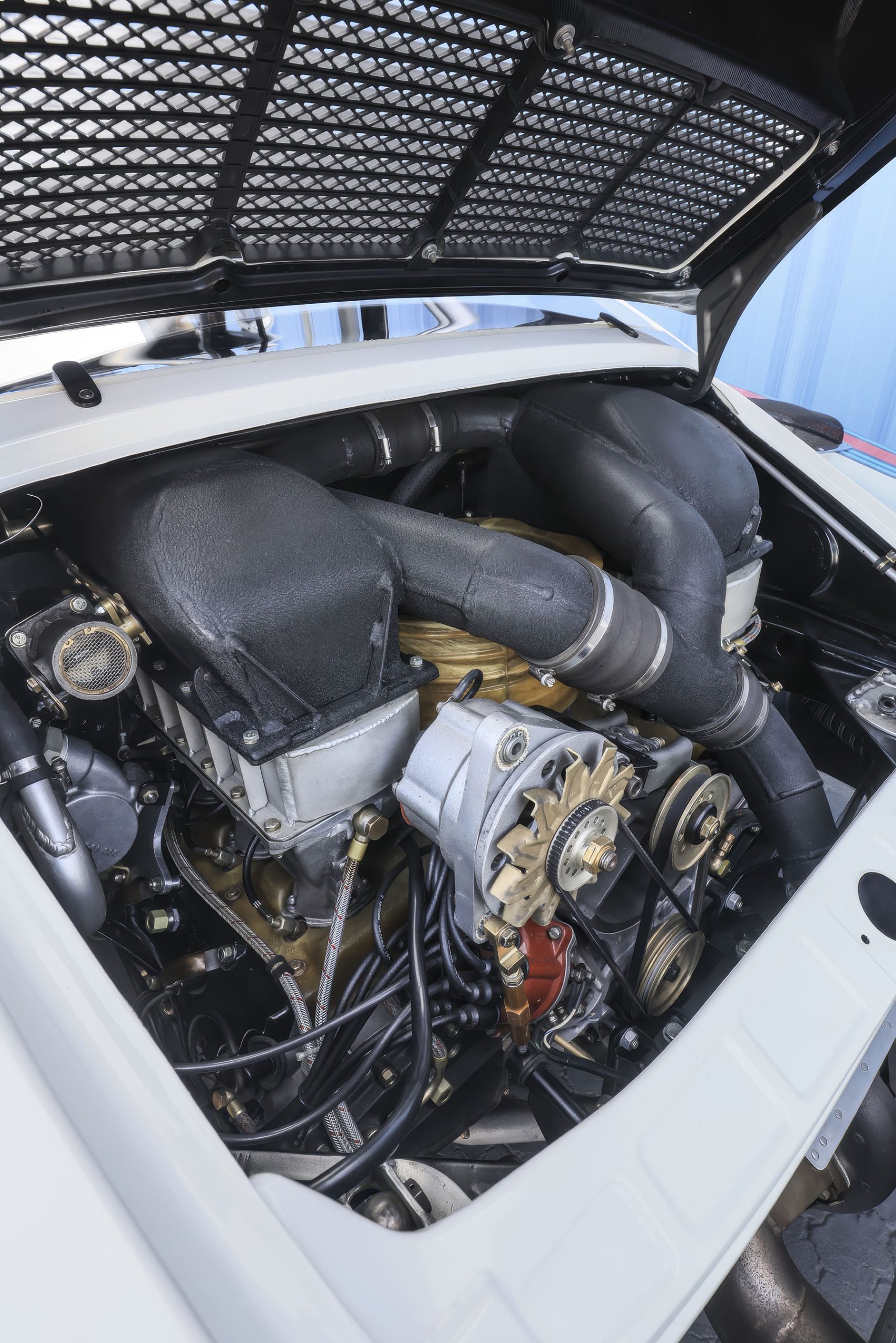
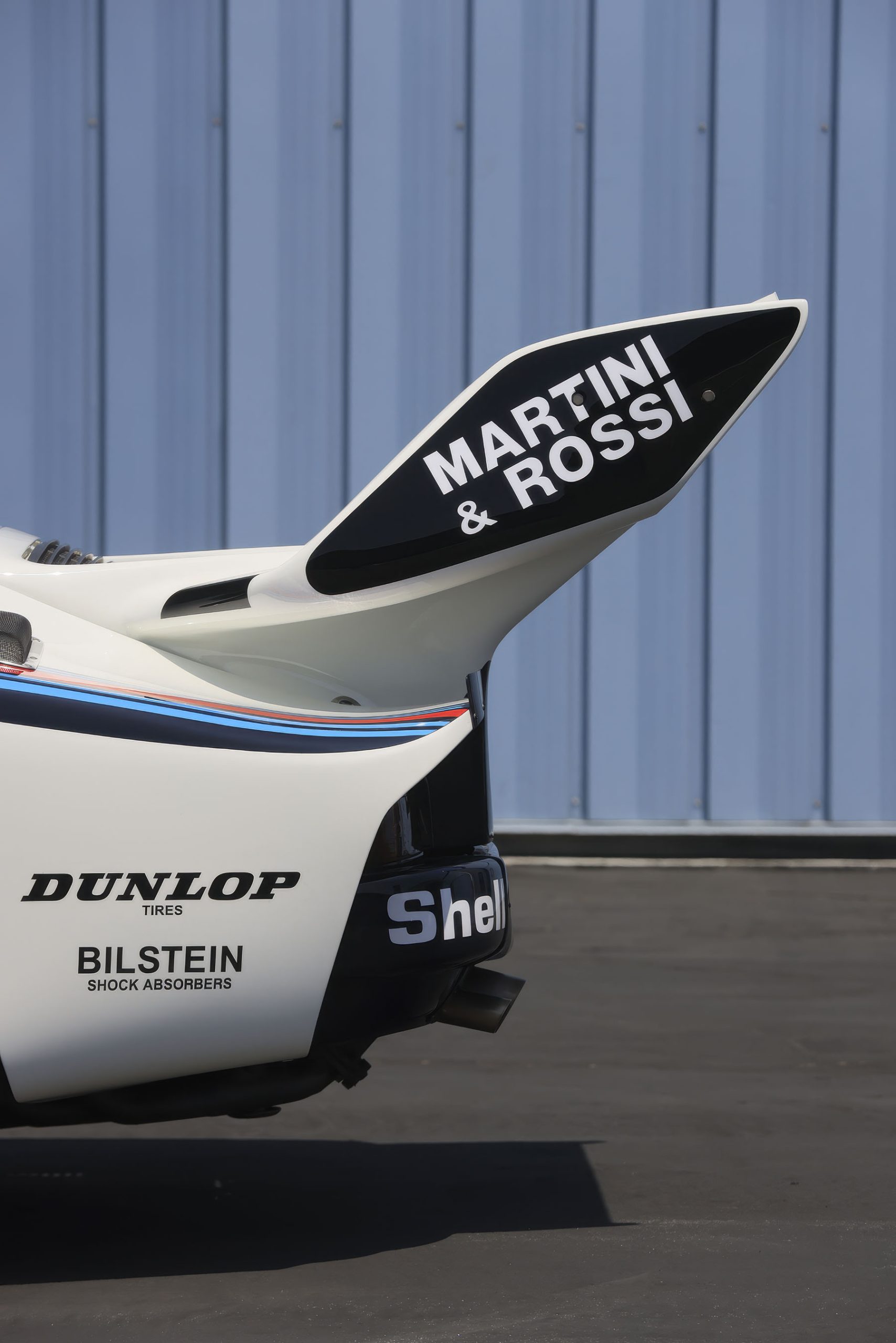
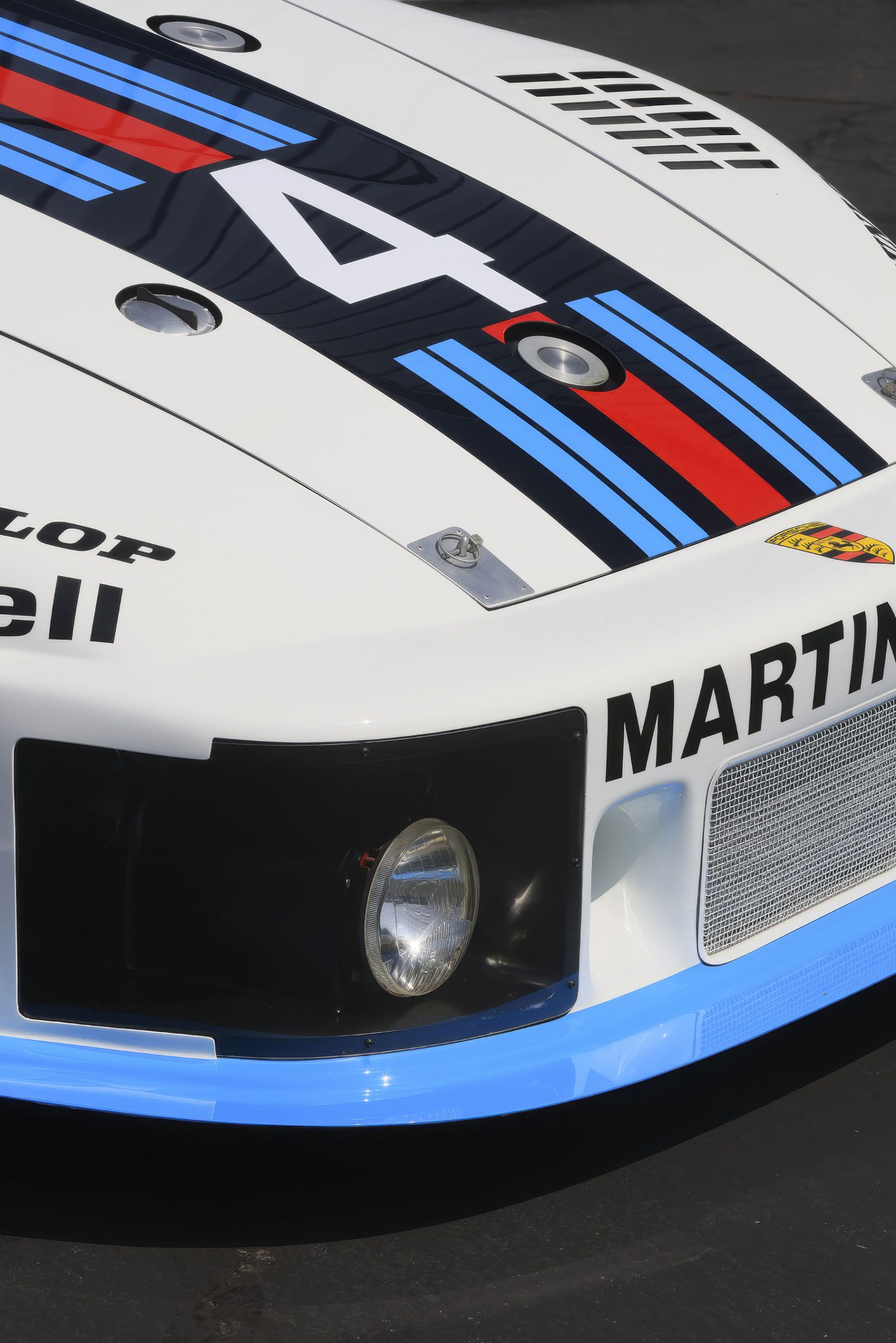
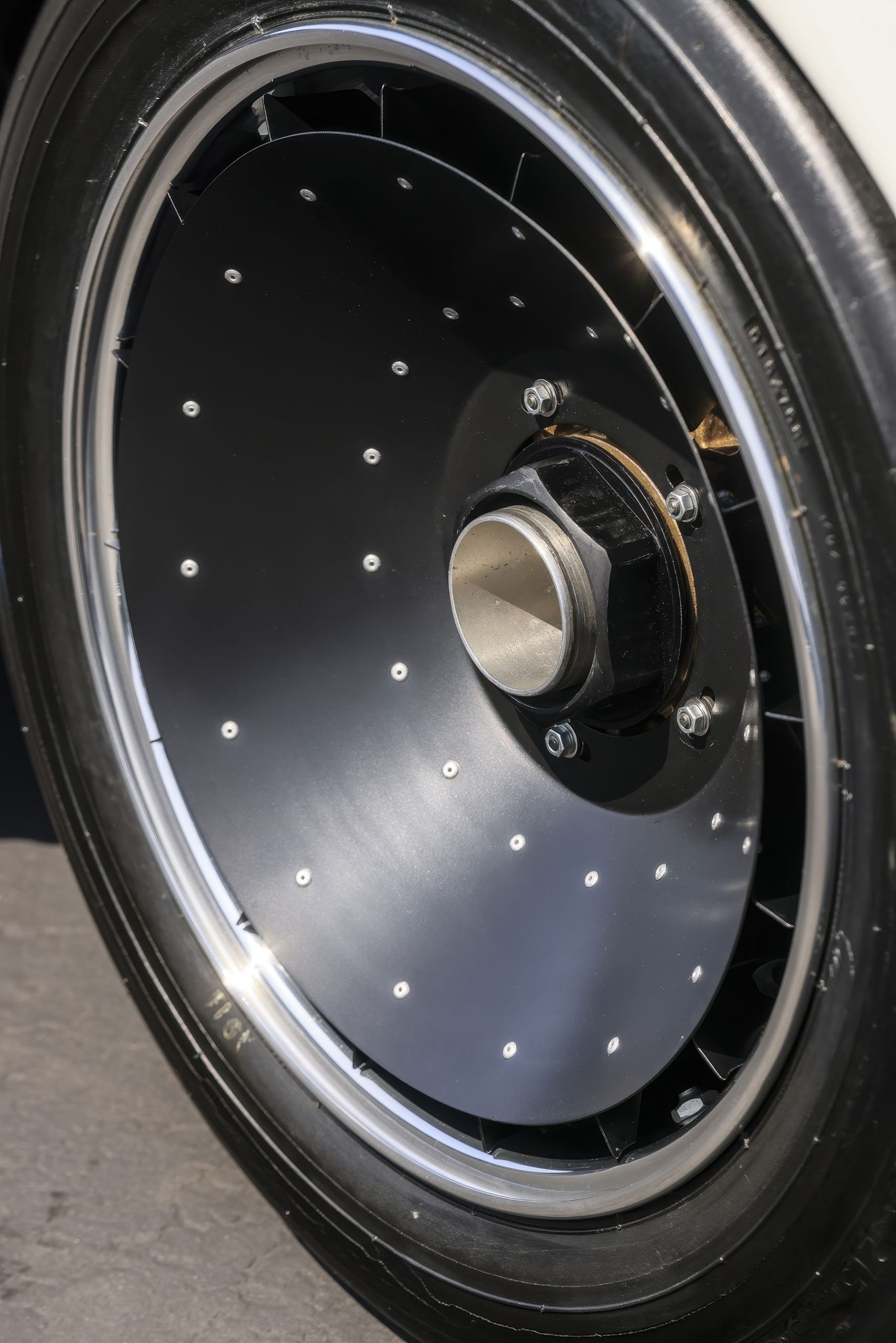
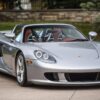
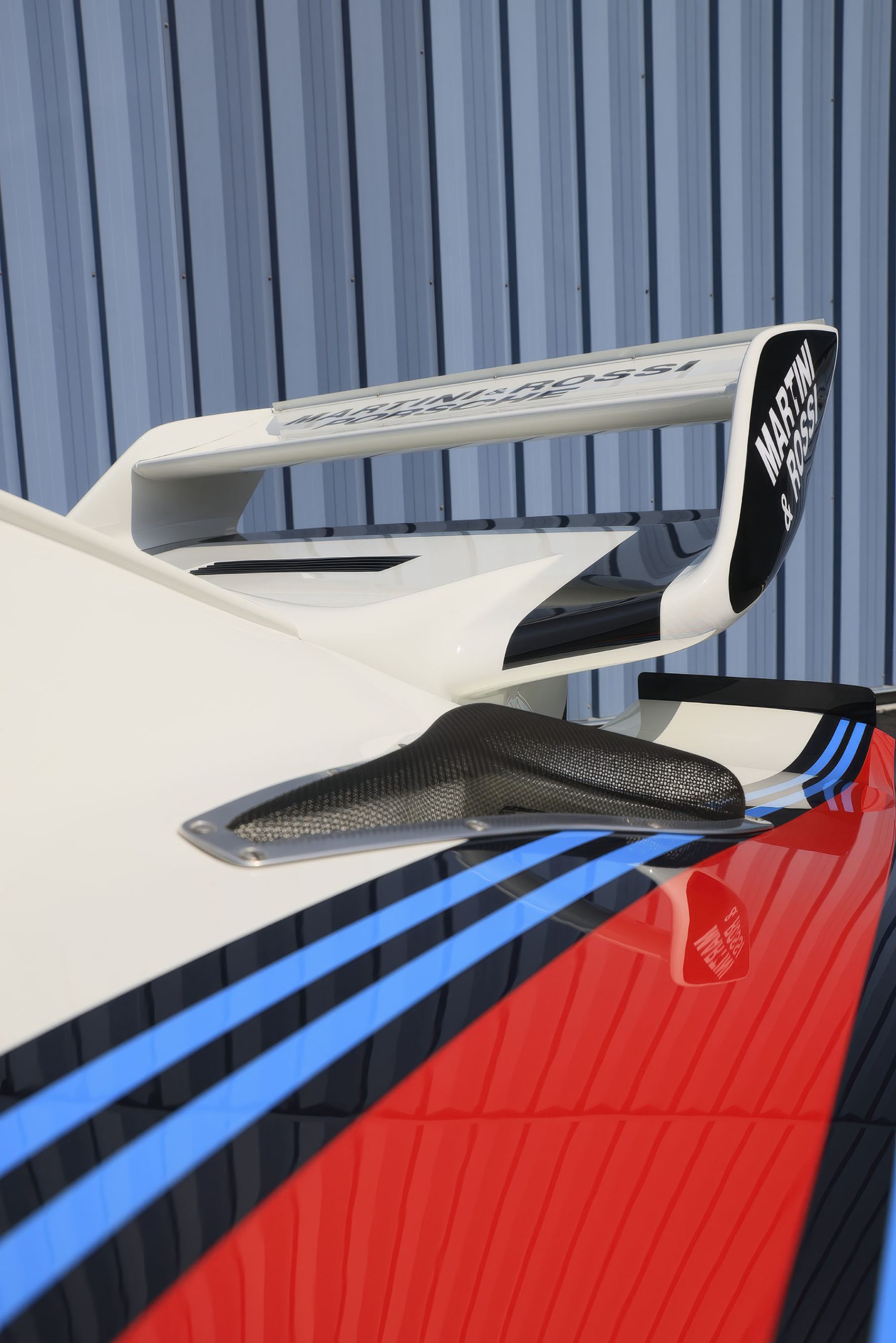
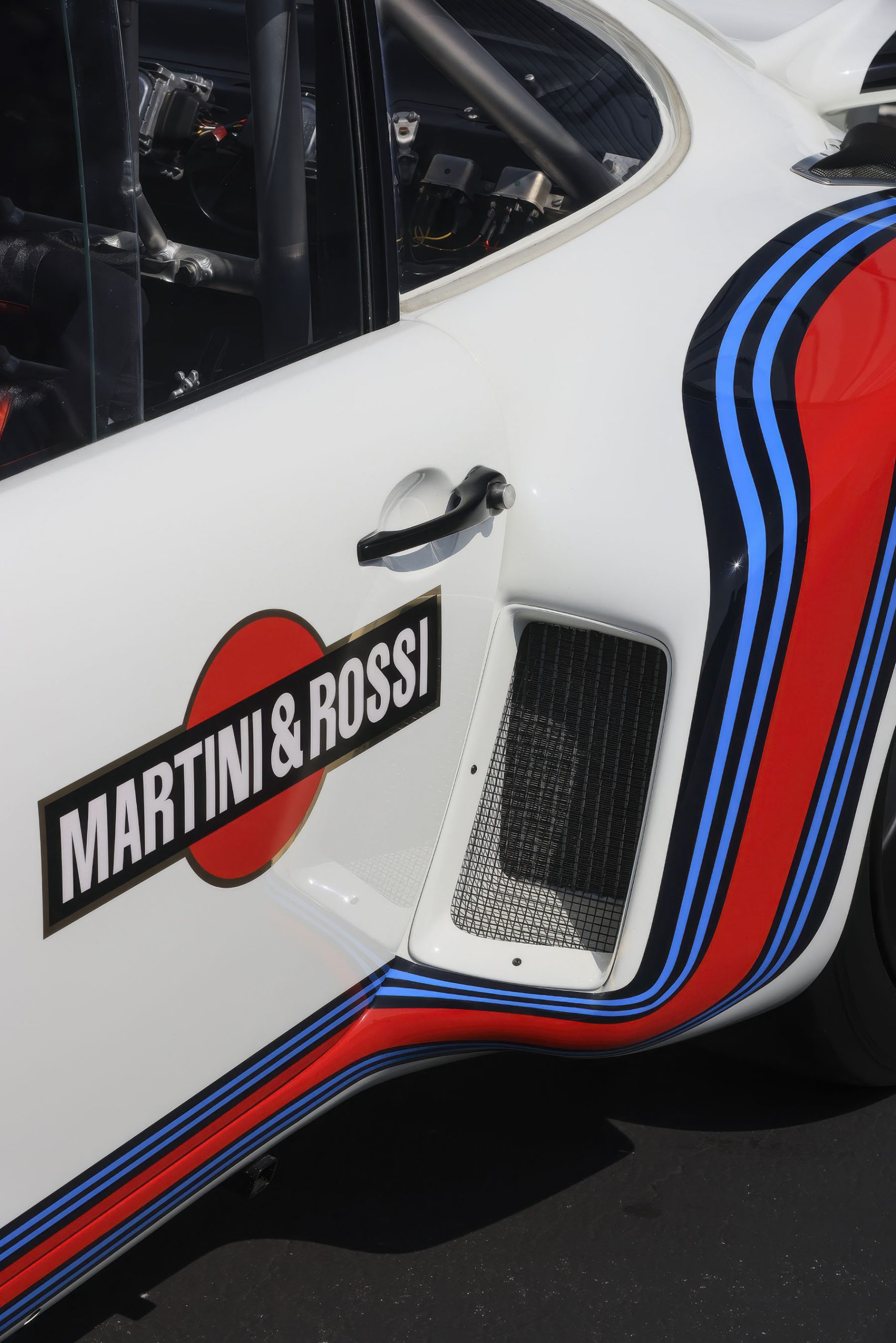
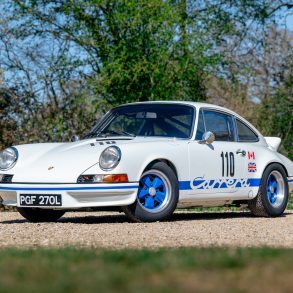

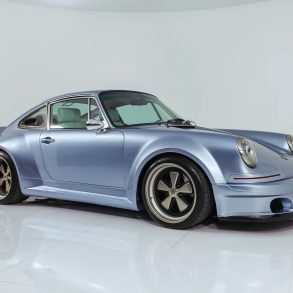

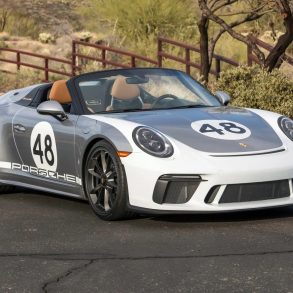


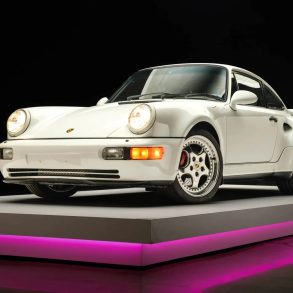

Dear,
the 935 never had a “double wishbone” rear suspension. Read the rules.
Best regards, Achim
0